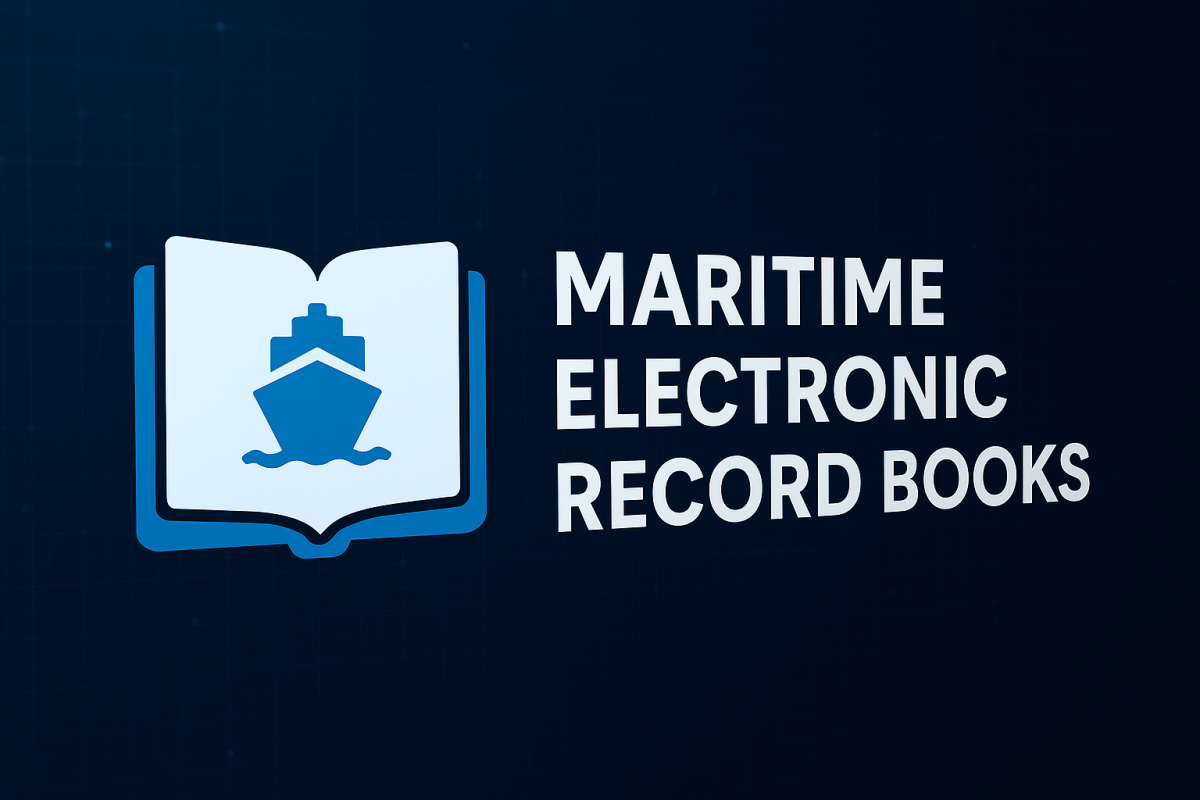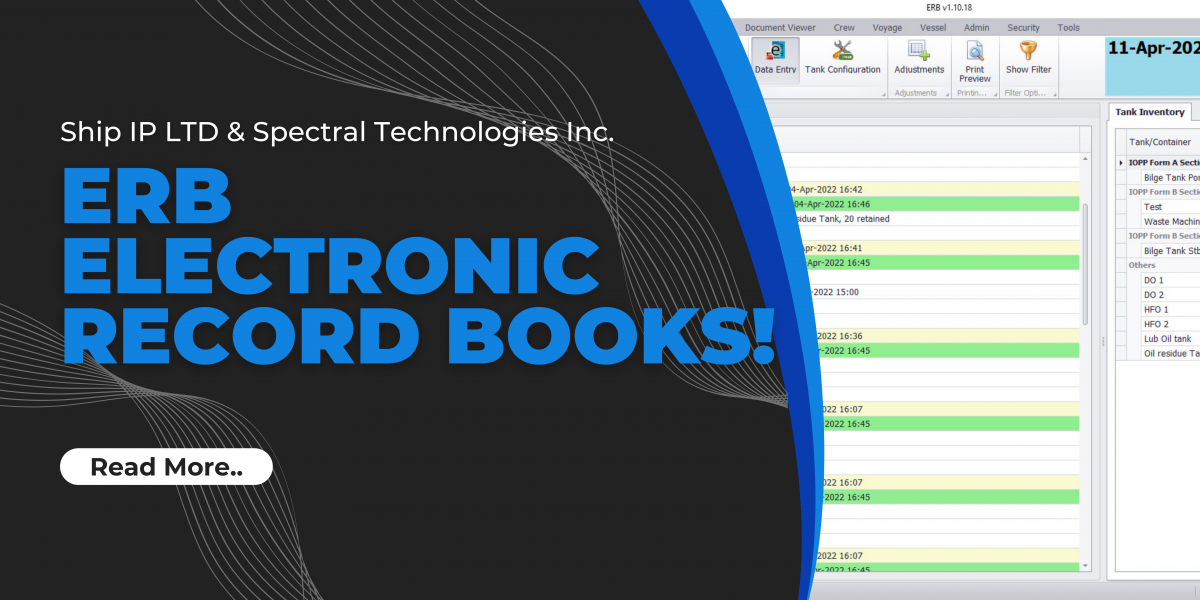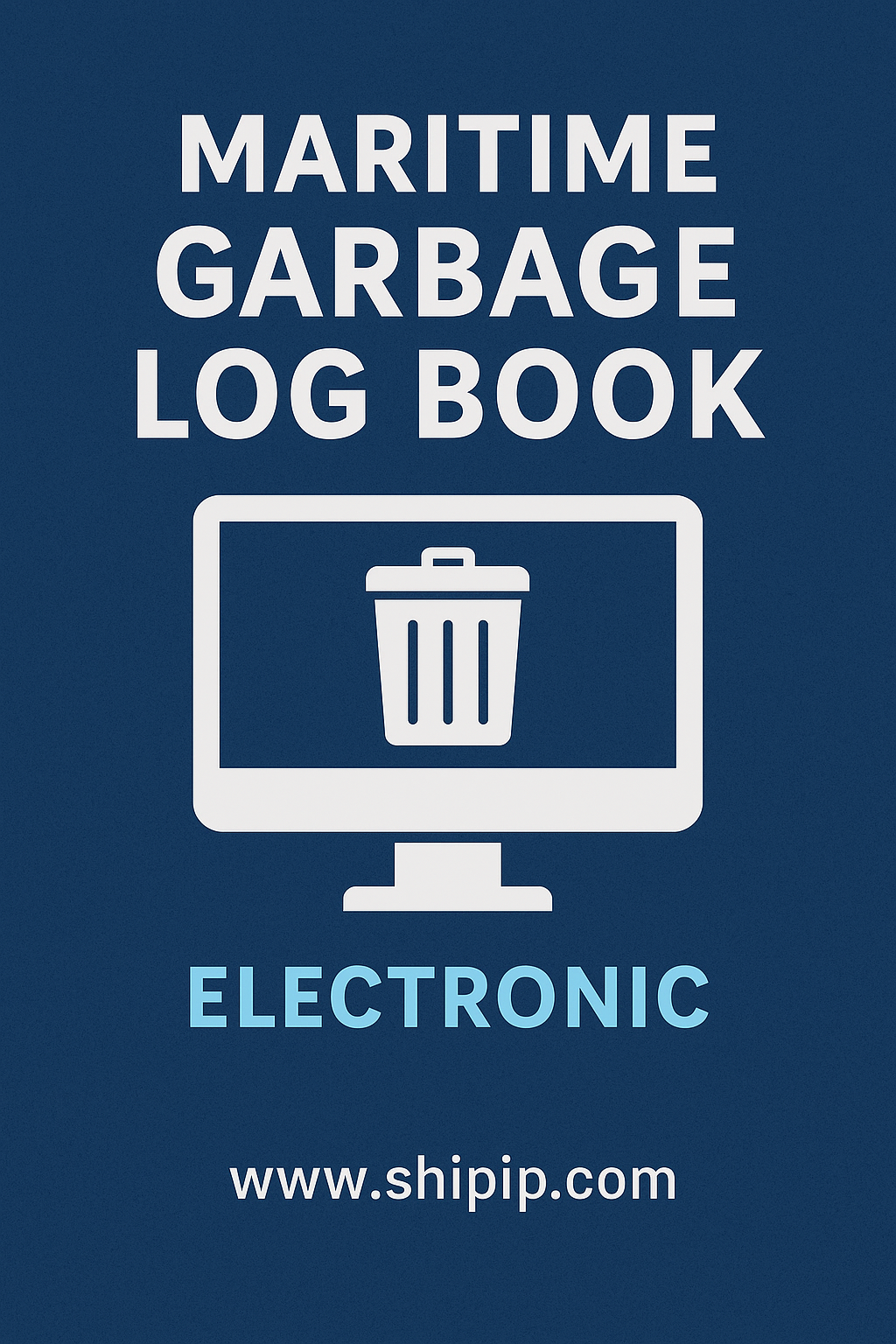The maritime industry is undergoing rapid digital transformation, and one of the key shifts is the move from paper-based logbooks to fully digital record-keeping systems. For shipowners, managers and crew alike, the adoption of electronic record books (ERBs) offers improved efficiency, accuracy, compliance and sustainability. At ShipIP / NavisIP we see this as a strategic opportunity to support clients with solutions that meet regulatory requirements and boost operational performance.
In this article we review two recent major developments that every vessel operator should know:
-
The upcoming mandatory format and electronic approval changes for the Ballast Water Record Book (BWRB) under the International Maritime Organization (IMO)-governed conventions. ww2.eagle.org+3Lloyd’s Register+3ww2.eagle.org+3
-
The shift in training and log-book culture: cadet/training record books are becoming digital, signalling broader acceptance of electronic documentation on board. GOV.UK+1
1. BWRB & ERB regulation update
Vessels subject to the Ballast Water Management Convention (BWM Convention) must pay close attention to two IMO resolutions:
-
MEPC.369(80): Amends Appendix II of the Convention (Form of Ballast Water Record Book) and enters into force 1 February 2025. maritimes.gr+1
-
MEPC.383(81): Amends Regulations A-1 and B-2 of the Convention to formalise electronic BWRBs and enters into force 1 October 2025. ww2.eagle.org+2Lloyd’s Register+2
What it means for shipowners & managers
-
From 1 February 2025, all ships with an approved Ballast Water Management Plan (BWMP) must start using the updated BWRB form, with new item codes (A-H) and revised structure. Lloyd’s Register
-
From 1 October 2025, if a ship chooses to replace its hard-copy BWRB with an electronic version, that ERB must be approved by the flag administration (or an authorised Recognised Organisation) in line with IMO guidelines MEPC.372(80). A ship-specific “Declaration of electronic BWRB” must be carried on board. ww2.eagle.org
-
Operators must ensure their software providers/vendors are type-approved, meet performance standards, and that the system allows entries to be made, verified by the Master, countersigned and printed if required. Lloyd’s Register+1
Why it matters
-
The shift to ERBs is not just regulatory: it brings operational benefits — faster entry, less paperwork, fewer errors, better traceability.
-
But it also carries risk: non-compliance with format changes or using an unapproved ERB can lead to deficiencies during surveys or port state control.
-
For fleets operating in Greek ports or under Greek flag (or visiting Greece) the timeline is critical: many administrations and classification societies are already updating guidance.
Key action points for your company
-
Audit all vessels to check whether their BWRB format has been updated in line with MEPC.369(80).
-
Review the fleet’s ERB software: is it approved? Does it cover the BWRB item codes? Does it meet the IMO guidelines for electronic formats?
-
Develop a roadmap for migrating from hard-copy to approved ERB (if not already done).
-
Provide training to masters & officers: they must be familiar with the new format and the electronic workflow.
-
Update SMS (Safety Management System) to reflect the digital record book process, data retention, backup, print-out capabilities, verification protocols.
2. Digital training & record-keeping for cadets and seafarers
While the first trend is regulatory-operational, the second is about human resources and training. The Maritime and Coastguard Agency (MCA) in the UK announced on 19 September 2025 that the traditional paper Training Record Books (TRBs) for cadets will be phased out and replaced with a digital “eTRB” app. GOV.UK+1
What’s changing
-
From the academic year 2025/26, cadets on MCA Certificate of Competency (CoC) reduced sea-time routes will use a cloud-based app to log their sea time, training tasks, certificate uploads, sign-offs by officers, and sync when online. GOV.UK
-
This digital TRB aligns with broader seafarer training modernisation under the CT&M (Cadet Training & Modernisation) programme — emphasising digital skills, alternative fuels, cybersecurity, data logging. GOV.UK
Implications for wider ERB use
-
The industry’s shift to digital record-keeping for training reflects a broader culture change: acceptance of electronic logs on‐board will accelerate.
-
For software providers (like us at NavisIP) this means opportunity: the same platforms used for training record books may integrate or dovetail with operational ERBs.
-
For ship operators: it emphasises the need for crew to be comfortable with digital logbooks, apps, cloud access, offline/online syncing and verification.
Recommended steps
-
Ensure that training programmes for your crew include familiarization with digital logbook apps.
-
Verify whether your fleet’s ERB software integrates with personnel training records (or could in future).
-
Monitor flag state approvals for electronic TRBs, logbooks and other digital records — because this will influence acceptance by port states and auditors.
-
Leverage this story in your marketing: digital training and ERBs = operational efficiency + safer, greener ships.
3. Why ERBs are core to digital-compliance and maritime transformation
Compliance & audit readiness
Under International Convention for the Prevention of Pollution from Ships (MARPOL) and the BWM Convention, electronic record books have been permitted for several years. ww2.eagle.org+1 The new developments are about formalising formats and approvals (as with the BWRB). Using approved ERBs helps vessels stay ahead of audits, surveys and port state control.
Operational efficiency & data quality
-
Electronic record books reduce manual entries, transcription errors and discrepancies.
-
They support tamper-proof entries, audit trails, e-signatures and backups. For example, software solutions available today ensure encryption, cloud or on-board storage and secured access. MariApps Marine Solutions+1
-
Data captured via ERBs can be analysed for trends, compliance patterns and predictive maintenance.
Sustainability & crew welfare
-
Reducing paperwork, improving accuracy, freeing officer time from logbook administration = improved operational focus.
-
From a sustainability standpoint, digital record books reduce paper use and facilitate transparency for environmental operations (ballast water, discharges, etc.).
4. Call to action
If you’re managing a fleet, now is the time to act. Ask yourself:
-
Is my current record-keeping solution compliant with the new BWRB format and electronic approval requirements?
-
Have I audited my vessels for digital readiness and crew competence in using ERBs?
-
Do I have a roadmap for migrating from paper to digital, with a clear timeframe ahead of October 2025?
-
Are my training programmes aligned with the digital transformation for seafarers and officers?
At ShipIP we are ready to help. From consulting, software implementation, training, to flag state approval support — we cover the full lifecycle. Contact us today to schedule an assessment and modernise your record-keeping operations.










